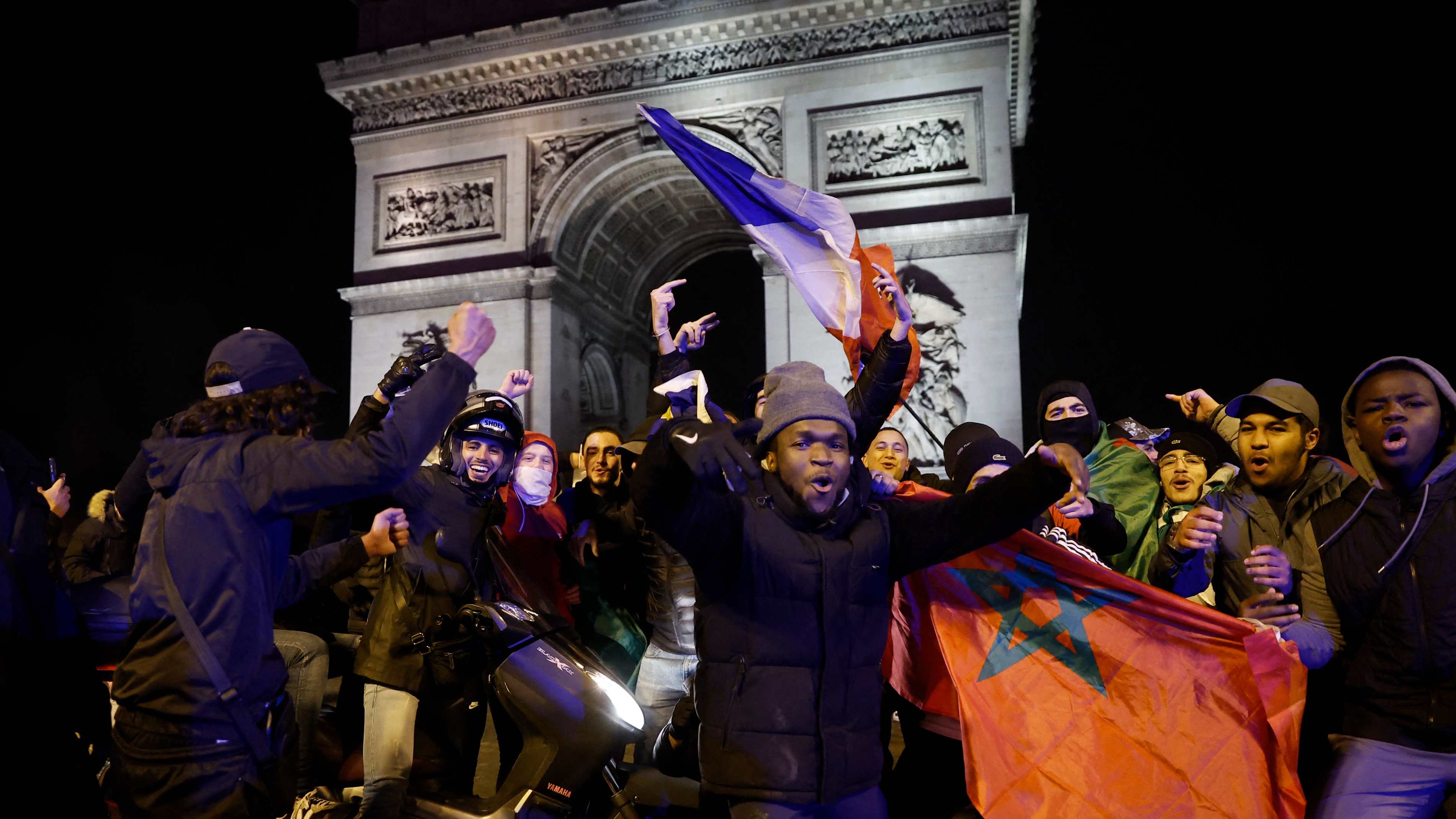Chance wanted France and Morocco to play in the semi-finals of the World Cup – Les Bleus with 13 players originally from Africa and the Atlas Lions with 13 footballers born and raised in Europe.In the ranks of Didier Deschamps’ squad, we have players from Angola, Congo, Cameroon, Benin, Ivory Coast, Mali, Senegal, Guinea, Mali, Algeria and Morocco. Morocco coach Walid Regragui, born in France, chose footballers who could play for the national team of the Netherlands, Belgium, Spain, Italy and of course France again.The biggest star of Les Bleus, Kylian Mbappe, was born in a mixed marriage between a Cameroonian and an Algerian, Camavinga’s parents are from Congo, but he was born in Angola, the Tchouamenis are from Cameroon, as is William Saliba’s mom. Mandanda, Disasi, Kolo Muani come from the Congo. Kounde is from Benin, Upamecano is from Guinea, Dembele comes from Mali on his father’s side, and from Senegal and Mauritania on his mother’s side. Matteo Guendouzi is among the few Moroccan footballers who did not choose his father’s country.##NAJAVA_MECA_6886040##All of Morocco’s best players were born on European soil, from Hakimi to Amrabat and Ziyech. Achraf Hakimi could have played for Spain as well as reserve goalkeeper Munir Mohammadi. Ziyech, Amrabat, Mazraoui, Aboukhlal gave up the Dutch to wear the Moroccan jersey. El Khannous, Amallah, Chair, Al Zaruri preferred Morocco to Belgium, while Saiss and Boufal could be on the other side tonight, in the jersey of France. Cheddira won’t even be on the bench tonight because of the red card, but that’s even better because if he had chosen his country of birth, Italy, he wouldn’t have come to Qatar.The two national teams are the two faces of the modern world. The connection between the new and the old. French integration and the “melting pot” against the Moroccan strong bond that unites one of the most numerous non-European ethnic communities in the EU, which could be seen in the past weeks on the streets of numerous Western European cities. Moroccans are the most represented national migrant group in all the largest western EU members, except Germany, from France and Italy to the Benelux in the north and Spain in the south.Meteoric rise, meteoric offer: Leicester willing to pay 45,000,000 for the biggest revelation of the World CupKing Mohammed VI is a big fan of the most important secondary thing in the world and spared no money to send emissaries to all EU members where there were talented young Moroccans to convince them to opt for the country of their parents or ancestors. At the World Cup in Qatar, his policy was rewarded with unprecedented success, and Hakimi, Amrabat, Boufal and Ziyech are the team’s leaders along with goalkeeper Yassine Bounou, who was born in Canada.The match between France and Morocco holds a label of a high-risk one, but much lower risk than it would be if France faced Algeria. The Francophobia that exists among young French people of Maghreb origin is widespread, more than the authorities in Paris would like to admit, but much less than the enemies of France and Europe would like. However, due to the fact that young Moroccans in French cities are motivated tonight more by a desire for some kind of metaphorical revenge than by a sporting charge, a record number of policemen will be deployed tonight in all cities where there are communities of Maghreb origin.Can Morocco extend fairytale run against France for place in final?It should be said, however, that the relationship between Morocco and France is not as traumatic as that between France and Algeria. Morocco was never considered a part of the French territory, it was always a protectorate. The French knew that, sooner or later, they would leave the westernmost Arab country. That happened in 1956. There was much less tension, much less violence and no civil war like in Algeria.

